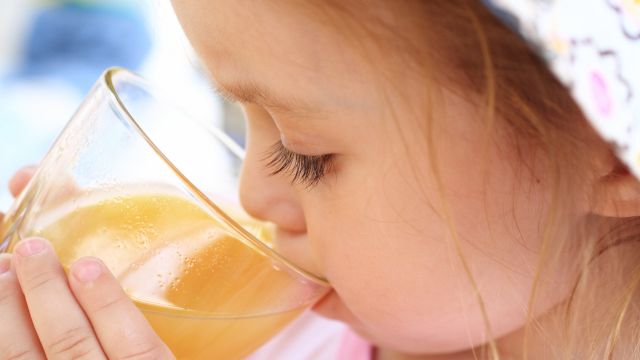It's always exciting, and maybe even a little stressful, when the grandkids come over for a visit. You've got to plan activities, sleeping arrangements and meals they actually want to eat. Foods like granola bars and juice may strike you as being healthy, convenient treats for the little ones, but in fact they can be loaded with unhealthy added sugars.
The American Heart Association and the USDA MyPlate recommend limiting the amount of empty calories kids get from added sugars. And if kids go overboard? Too much sugar over time may lead to several health problems -- including obesity, diabetes and heart disease.
We know you want the best for your grandkids. So whether you're prepping for an entire weekend together or simply want to have snacks on hand for surprise visits, be smart about these items in your shopping cart:
- Yogurt: Some yogurts can be a part of a healthy diet, including plain Greek yogurt (which is packed with protein). But let's be real -- that's not the type your grandkid is grabbing. Fruity nonfat yogurts often have added sugars to make up for the lack of fat, sometimes taking their total sugar count up to 30 grams. That basically a day's worth of sugar for adults! The best way to serve this dairy treat to kids is to add your own fruit for natural sweetness.
- Granola bars: They've got several names -- granola bars, breakfast bars, energy bars, cereal bars, etc. While they may seem healthy with ingredients like nuts and oats, some brands are loaded with sugar, often in the form of chocolate or high fructose corn syrup. If you've got the time, make your own bars, sweetened with fruit. The grandkids will get their fiber without the sugar crash.
- Canned fruit: Your heart is in the right place for wanting to give fruit to your darlings, but fruits packed in syrup can have over 35 grams of sugar per cup. That's a lot of added sugar that nature didn't intend. The solution is simple -- ditch the fruit cup, and serve up fresh or frozen fruit instead.
- Juice: Don't be fooled by this long-time breakfast favorite. Fruits naturally contain sugar, and combined with added sweeteners (like honey, syrup or fruit juice concentrate), it can make for a huge 20-gram sugar bomb. Follow the advice of the American Academy of Pediatrics and offer servings of 100% pure fruit juice based on the child's age -- 4 to 6 ounces a day for children 6 months to 6 years, and 8 to 12 ounces for kids 7 and up.
- Sports drinks: So you passed on the juice and decided to go with a sports drink. Unfortunately, these thirst quenchers can pack 20 to 40 grams of sugar. And resist reaching for brightly colored drinks that claim to be filled with vitamins. Their artificial colors and flavors make them pricey sugar water (about 30 grams worth).






